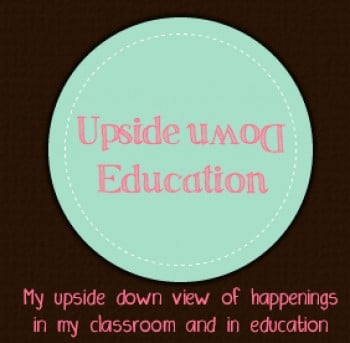Ever have that student that seems to be clueless in your class? You know the one that fails every test, cannot get the work finished “correctly,” seems to have no confidence in his school work, is labeled with a learning disability, etc, etc, etc. You know that kid. The one that cannot read. We all have them. Some, including myself, have multiple kids like this every year.
Could you imagine being that kid?
I have this one kid who I was told by a coworker who had him in the past was dumb. Clueless. She used other words as well. Then it was pointed out that he was special ed. See my favorite thing about 6th grade at a middle school is that, unless I know their mom or dad from outside of school, I have no prior knowledge they exist, let along what their classroom behavior is. I think my response to this was “Well bless him.” (In the south, we use that a lot, it’s not in a biblical sense)
So as the year has gone poor Chipper (This is not really his name it is the name of one my favorite dogs and one of my favorite baseball players) has struggled in my class. I would try to help him by going over to his desk and try to make sure he knew what to do, this would make him nervous. He would start shaking and reassure me he had it under control. I would look over hi chicken scratch and start guiding him in the correct direction. When the students worked in groups he was always very quiet,not stepping in to voice his opinion, etc. Then last week happened…
He spoke. Not to me, to the entire class. Finally after almost two months of school, he joined in the discussion. Not just to blurt out, not to do anything but answer my question to the class. He did this correctly. Then answered the next before the rest of the class, THEN THE NEXT. Two days later I assigned each student to group and that group was to teach the class about a certain terrestrial planet. His group went up, first kid spouted out a fact or two he was reading from a piece of paper (kinda boring I hate to admit), then it was Chipper’s turn. Not only was he giving facts about the planet he was explaining them. He then just finished the rest of the information for his group. He was interesting.
That is when it hit me. This kid knows more than the wrong answers on his papers or test. Today we were working on study guides, called 3 kids to my table and worked with him. He could not really read the questions. He could not read his notes, the text, etc, to find the answers. So I read one of the questions to him, “which planet is the largest?” He gave me a blank look, started looking through the book, notes, then said he did not know. I stopped and just said “Hey Chipper, what planet is the largest?” he looked at me “Jupiter is the biggest, I know that one.” Yes, seriously.
All of this knowledge is in there, but it is not coming out. It is stuck, but the education system says that it has to only come out in certain ways for it to be counted successful or correct.
He is a prime example of why we must teach the same material in different ways. He cannot read the material, he has trouble writing down information. But during my short 5 minute lectures, he soaks it all in, during short videos I show, he understands it all. He is starting to dig deeper in his thinking. He is getting there.
What is sad is that when comes time for standardized testing, he will not reach certain marks. But I know something state officials don’t, I know he is smart. I know he can learn. I know there is something to Chipper than what can be tested in a sheet of paper. We have an 3/4 of a school year left. I cannot wait to see what he can eventually do!!
ad

How well I know that not all kids fit in the box. Thanks for being the teacher that looks for ways to stimulate learning in these not ‘special needs’ but “extra” ordinary kids! You’re the best!
Isn’t that one of the major problems with the school system as it stands? We put the focus on what they don’t know and make kids feel ashamed of it instead of helping kids to realize what they do know and capitalizing on it to help them make connections and increase their learning.
Thank you for sharing this! We’re all very complex people, aren’t we? Doesn’t matter if we’re labeled one thing or another, we each have unique learning needs.